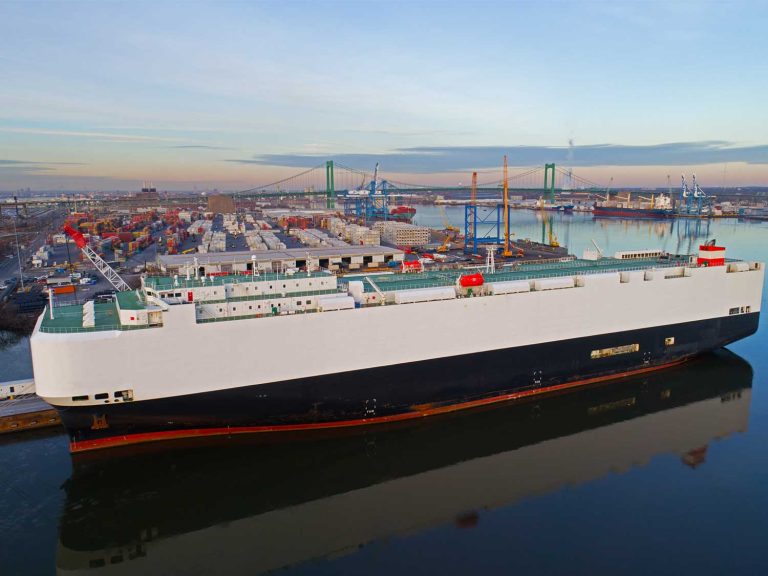
Date:
Trump’s new tariffs could shake the UK and EU automotive sector
New US tariffs on steel, aluminium, and auto parts threaten production costs, trade relationships and market stability, and for UK and EU carmakers, the implications of these policies could be severe, impacting everything from manufacturing costs to supply chain efficiency and trade competitiveness.
During a press conference on the 18th February, President Trump confirmed that auto tariffs would be set “in the neighbourhood of 25%.” Trump suggested that more clarity on the details would emerge by the 2nd April, coinciding with the conclusion of an investigation into international tariff policies. The move signals potential reciprocal tariffs against nations deemed to impose excessive duties on US imports.
The US president has already announced a 25% tariff on steel and aluminium imports from Canada and Mexico, reversing previous trade agreements and significantly increasing costs for North American carmakers. This move comes alongside a threat to impose similar 25% tariffs on auto parts, a policy that could upend the region’s deeply integrated supply chain.
The US-Mexico-Canada Agreement (USMCA) was designed to protect North American vehicle production, stipulating that 75% of a vehicle’s content must be produced within the region to qualify for duty-free trade. However, the proposed tariffs would undermine these rules, forcing manufacturers to absorb the costs or seek alternative sourcing strategies.
The risk to UK and EU carmakers
Trump’s administration has also pledged to introduce reciprocal trade measures, targeting countries with higher tariffs on US exports. The EU currently imposes a 10% tariff on imported vehicles, while the US applies only 2.5% on passenger cars. The White House sees this as an unfair imbalance and is now considering higher duties on EU automotive imports, further straining transatlantic trade.
The UK and EU have long relied on access to the North American market, with car exports forming a major part of trade with the US. If tariffs are introduced, UK and EU carmakers will face higher costs to sell vehicles in the US, making them less competitive.
An example of the potential impact is a leading German high-performance car manufacturer, which has seen the US overtake China as its largest market. The brand relies heavily on imports to supply its American dealerships and is particularly vulnerable as it has no quick fix to localise production.
Analysts suggest that if tariffs exceed 10%, it may have to consider shifting some SUV production to the US, but logistical and supplier challenges present significant hurdles.
The financial impact could be severe. Industry estimates suggest that a tariff increase to 10% could eliminate billions from German automakers’ earnings before interest and taxes. While high-margin luxury models could potentially pass costs onto consumers, more competitively priced models may struggle to remain viable in the US market.
New era of trade uncertainty
The North American automotive market is one of the most interconnected in the world, with carmakers and suppliers depending on seamless cross-border trade. The new tariffs could lead to supply shortages, higher production costs, and retaliatory trade measures from Canada and Mexico.
Retaliation is already on the horizon, with Canada, Mexico, and the EU preparing countermeasures. The European Commission has pledged to respond “firmly and immediately” if additional tariffs are imposed, warning that the US is undermining decades of global trade cooperation.
As global trade policies shift and new tariffs reshape supply chains, proactive planning is more critical than ever. At Metro, we leverage award-winning services and deep industry expertise to help automotive brands, manufacturers and OEM’s navigate evolving trade barriers, regulatory changes, and supply chain disruptions.
Whether you need to mitigate the impact of tariffs, ensure compliance with new regulations, or adapt sourcing/export strategies, our tailored solutions keep your supply chain resilient and competitive.
EMAIL Andy Smith, Managing Director, today to explore how Metro can safeguard your supply chain and support your business in 2025 and beyond.
